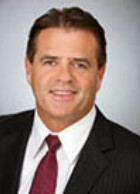Insurance
Many commercial insurance policies include business interruption coverage. This is insurance designed to replace income and pay extra expenses when a business is affected by a covered peril. Named perils policies typically include damage resulting from theft, vandalism, wind, flooding, and fire. Other "all-risk" policies provide coverage for all perils and would include civil or military authority, such as the shutdowns ordered during this pandemic.
Viruses and disease are typically not included under named perils policies and are often expressly excluded under all-risk policies.
Business interruption insurance typically requires there be direct physical damage to covered property before the insurance applies. The current pandemic has resulted in a flood of business interruption claims, and the property damage issue is already being litigated.
Insurers argue that there is no property damage and, therefore, no coverage. Those insured argue that viral infection or even potential viral infection constitutes property damage. How this issue will ultimately be decided remains to be seen.
In any event, business owners should consult with their insurance brokers and legal counsel to carefully review all existing insurance policies to determine if there is a potential for insurance coverage.
Leases
In many areas, state and local municipalities have passed emergency measures creating a moratorium on both residential and commercial evictions.
Some provide for rent deferral, and most recommend that landlords and tenants work together to create arrangements both can live with. Each situation is different, and in some instances, it is not in the tenant’s best interest to completely defer rent for as long as possible if there is an ability to pay.
I strongly recommend that each business analyze its particular situation and work toward negotiating solutions with their landlords rather than simply pursuing the maximum governmental relief available.
Other Contracts
The term force majeure has been discussed more during the last three months than over the prior 30 years combined.
This often-overlooked provision has taken front and center stage during this crisis in almost every industry. In a nutshell, force majeure (literally translated "superior force") is a contract provision that will relieve one or both parties from their obligation to perform because of a change in circumstances beyond the party's control that makes performance impossible.
Usually, the provision addresses things such as acts of God, strikes, riots, fires, floods, wars, civil strife, etc. Some provisions will expressly include disease or pandemics, but most do not. If not expressly addressed, the language of the particular provision will determine whether the current pandemic is encompassed.
Not all contracts have force majeure provisions, and some contracts actually have anti-force majeure provisions that expressly provide that performance is not excused despite acts of God, etc. Either way, these provisions can play an important role in the potential survival of a struggling business during this crisis.


